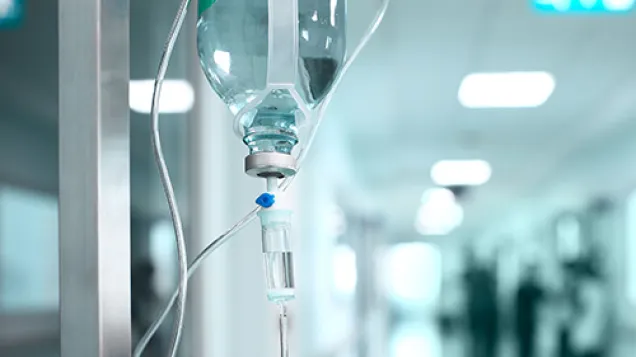ECDC country visit to Greece to discuss antimicrobial resistance issues
Summary
This country visit to Greece to discuss antimicrobial resistance (AMR) issues took place upon request of the national authorities on 15–19 April 2024. Various ECDC teams had previously visited Greece with a focus on AMR, in 2007, 2008, and 2010. The findings of this visit show that the AMR and healthcare-associated infection situation of the country remains highly concerning due to the high levels of multidrug-resistant organisms (MDROs) and their frequent transmission to newly admitted patients. Surveillance systems document extremely high rates of resistance to last-resort antibiotics used to treat severe and life-threatening infections in hospitalised patients. In the hospitals we visited, there was worrying evidence of uncontrolled spread of various multidrug-resistant (MDR) and extensively drug-resistant (XDR) bacteria, including MDR and/or XDR Klebsiella pneumoniae, Acinetobacter baumannii, and Pseudomonas aeruginosa. In addition, although Candida auris was only recently introduced in hospitals in Greece, it has rapidly disseminated throughout the healthcare system, with hundreds of cases in the affected hospitals within less than five years.
The high number of patients infected or colonised with MDROs who require the application of enhanced infection prevention and control (IPC) measures overwhelms healthcare staff, which results in further transmission of these MDROs. This situation represents a serious threat to patient safety. At worst it could impact the ability of hospitals in Greece to provide high-quality patient care. The current levels of AMR also pose a major burden on the healthcare system and consume resources that could otherwise be invested into improving staffing levels and IPC measures. At the same time, the current low staffing levels and the lack of resources for IPC contribute to worsening transmission of MDROs resulting in a downward spiral of less resources and increased transmission. Infections with MDROs result in increased morbidity and mortality of patients and prolonged patient stays ‘blocking’ hospital beds. In addition, the required isolation precautions complicate medical care and rehabilitation, thus further harming the affected patients.
Several policies to control AMR were implemented since the previous ECDC visit. Several initiatives and interventions already made a difference including the implementation of prescription-only dispensing of antibiotics that resulted in a massive reduction in non-prescribed antibiotic use. The introduction by law of antimicrobial stewardship teams in hospitals enabled the establishment of the necessary infrastructure to promote appropriate use of antimicrobials.
The visiting team also observed numerous valuable initiatives in hospitals driven by knowledgeable and dedicated personnel. However, while having a positive impact on the respective hospital or specific area of intervention, these disjointed initiatives fail to address the extent of the alarming public health crisis caused by AMR in the country. Only an urgent nationally coordinated effort, mobilising all levels with strong political commitment, leadership, and coordination under the framework of a public health situation of the highest national priority could bring all actors together under a common approach. This approach, powered by the rapid implementation of control measures and funding matching the level of the current public health crisis caused by AMR in hospitals would impact the transmission of MDROs and its significant adverse consequences for patients and the healthcare system in Greece.
ECDC country visit to Greece to discuss antimicrobial resistance issues
English (332.79 KB - PDF)


